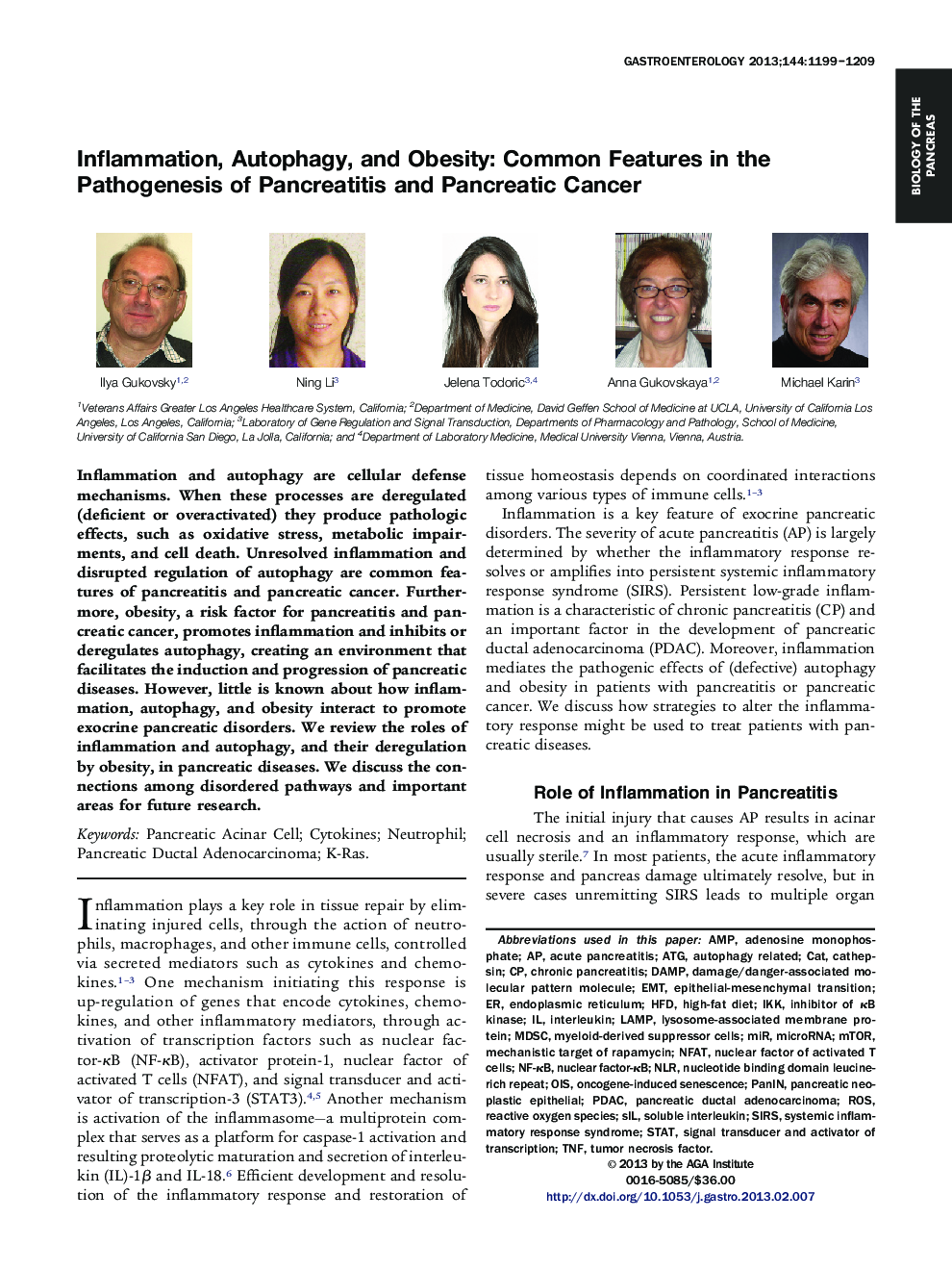| Article ID | Journal | Published Year | Pages | File Type |
|---|---|---|---|---|
| 3293228 | Gastroenterology | 2013 | 15 Pages |
Abstract
Inflammation and autophagy are cellular defense mechanisms. When these processes are deregulated (deficient or overactivated) they produce pathologic effects, such as oxidative stress, metabolic impairments, and cell death. Unresolved inflammation and disrupted regulation of autophagy are common features of pancreatitis and pancreatic cancer. Furthermore, obesity, a risk factor for pancreatitis and pancreatic cancer, promotes inflammation and inhibits or deregulates autophagy, creating an environment that facilitates the induction and progression of pancreatic diseases. However, little is known about how inflammation, autophagy, and obesity interact to promote exocrine pancreatic disorders. We review the roles of inflammation and autophagy, and their deregulation by obesity, in pancreatic diseases. We discuss the connections among disordered pathways and important areas for future research.
Keywords
NF-κBMDSCK-RasSIRSOISNLRIKKATGHFDMIRDAMPmTORNFATCATAMPTNFautophagy relatedROSadenosine monophosphatePancreatic ductal adenocarcinomaPDAC یا pancreatic ductal adenocarcinomaSTATOncogene-Induced SenescenceinterleukinInhibitor of κB kinaseEMThigh-fat dietPancreatic acinar cellMyeloid-derived suppressor cellsSystemic inflammatory response syndromeCytokinesSilendoplasmic reticulumNuclear Factor of Activated T Cellstumor necrosis factornuclear factor-κBLAMPSignal transducer and activator of transcriptionMicroRNAneutrophilMechanistic target of rapamycinAcute pancreatitischronic pancreatitisPanINLysosome-associated membrane proteinCathepsinEpithelial-mesenchymal transitionReactive oxygen species
Related Topics
Health Sciences
Medicine and Dentistry
Gastroenterology
Authors
Ilya Gukovsky, Ning Li, Jelena Todoric, Anna Gukovskaya, Michael Karin,
